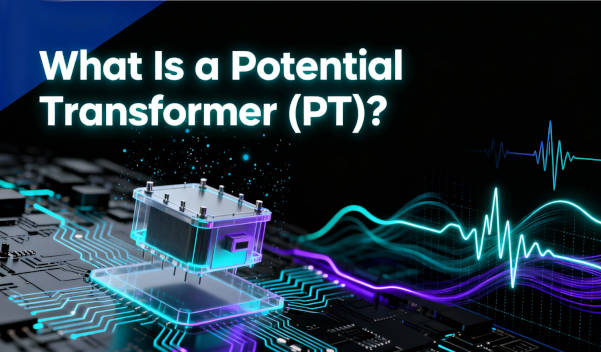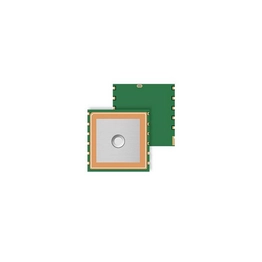Wireless & Communication Modules
Communication Modules
Definition:
Communication modules are specialized electronic components designed to facilitate the transmission and reception of data between devices. They are integral to the functioning of various systems, enabling them to interact and exchange information over different communication protocols and networks.
Functions:
1. Data Transmission: They send and receive data over wired or wireless networks.
2. Protocol Handling: They manage data according to specific communication protocols, such as TCP/IP, Bluetooth, or Zigbee.
3. Signal Processing: They process and condition signals for optimal transmission and reception.
4. Network Interface: They provide an interface for devices to connect to networks, such as the internet or local area networks (LANs).
5. Security: They often include encryption and authentication features to secure data transmission.
Applications:
1. Internet of Things (IoT): For connecting smart devices and sensors in IoT ecosystems.
2. Automotive: For in-vehicle communication systems and external data exchange.
3. Industrial Automation: For machine-to-machine communication in manufacturing processes.
4. Telecommunications: For base stations and mobile devices to establish network connections.
5. Medical Devices: For remote and data transfer in healthcare applications.
Selection Criteria:
1. Compatibility: Ensure the module is compatible with the device's hardware and software.
2. Protocol Support: Choose a module that supports the required communication protocols.
3. Range and Speed: Consider the communication range and data transfer speed needed for the application.
4. Power Consumption: Evaluate the module's power efficiency, especially for battery-operated devices.
5. Security Features: Select modules with robust security measures to protect data integrity.
6. Size and Form Factor: Consider the physical dimensions and form factor for integration into the device.
7. Cost: Balance the cost of the module with its features and performance requirements.
8. Reliability and Durability: Choose modules with proven reliability and resistance to environmental factors.
9. Support and Documentation: Ensure the module is backed by comprehensive support and documentation for ease of integration and troubleshooting.
Communication modules are crucial for the seamless operation of modern technology, bridging the gap between devices and enabling the flow of information that drives innovation and connectivity.
Please refer to the product rule book for details.
Definition:
Communication modules are specialized electronic components designed to facilitate the transmission and reception of data between devices. They are integral to the functioning of various systems, enabling them to interact and exchange information over different communication protocols and networks.
Functions:
1. Data Transmission: They send and receive data over wired or wireless networks.
2. Protocol Handling: They manage data according to specific communication protocols, such as TCP/IP, Bluetooth, or Zigbee.
3. Signal Processing: They process and condition signals for optimal transmission and reception.
4. Network Interface: They provide an interface for devices to connect to networks, such as the internet or local area networks (LANs).
5. Security: They often include encryption and authentication features to secure data transmission.
Applications:
1. Internet of Things (IoT): For connecting smart devices and sensors in IoT ecosystems.
2. Automotive: For in-vehicle communication systems and external data exchange.
3. Industrial Automation: For machine-to-machine communication in manufacturing processes.
4. Telecommunications: For base stations and mobile devices to establish network connections.
5. Medical Devices: For remote and data transfer in healthcare applications.
Selection Criteria:
1. Compatibility: Ensure the module is compatible with the device's hardware and software.
2. Protocol Support: Choose a module that supports the required communication protocols.
3. Range and Speed: Consider the communication range and data transfer speed needed for the application.
4. Power Consumption: Evaluate the module's power efficiency, especially for battery-operated devices.
5. Security Features: Select modules with robust security measures to protect data integrity.
6. Size and Form Factor: Consider the physical dimensions and form factor for integration into the device.
7. Cost: Balance the cost of the module with its features and performance requirements.
8. Reliability and Durability: Choose modules with proven reliability and resistance to environmental factors.
9. Support and Documentation: Ensure the module is backed by comprehensive support and documentation for ease of integration and troubleshooting.
Communication modules are crucial for the seamless operation of modern technology, bridging the gap between devices and enabling the flow of information that drives innovation and connectivity.
Please refer to the product rule book for details.
Categories
Datasheets
ESP32-C3 Datasheet
L80-M39 Datasheet
ESP32-WROOM-32E-N16 Datasheet
ESP32-WROOM-32UE-H4 Datasheet
A7670C Datasheet
ESP32-S3-WROOM-1-N16 Datasheet
BMD-340-A-R Datasheet
ESP32-S3 Datasheet
ESP32-S3-WROOM-1U-N4 Datasheet
SIM800 Datasheet
ESP32-C3-MINI-1-H4 Datasheet
TD501D232H Datasheet
TD501D232H Datasheet
ESP32-WROVER-E-N16R8 Datasheet
ESP32-S3-WROOM-1-N8R2 Datasheet
Article

What Is a Potential Transformer (PT)?
Table of Contents + 1. Basic Definition & Background 1.1. What Is a Potential Transformer? 1.2. PT vs Ordinary Transformer vs Instrument Transformer 1.3. Applications of Potential Transformers / What Are Potential Transformers Used For?2. Operation Principle 2.1. Working Principle of a PT / VT 2.2. Voltage Ratio & Turn Ratio Relationship 2.3....
Learn More >
ICkey Named Intel IoT Solution Aggregator, Marking Strategic Milestone in Partnership
ICkey, a leading distributor of electronic components and provider of digital supply chain solutions, has entered into a strategic partnership with global semiconductor giant Intel, becoming an official Intel IoT Solution Aggregator. To commemorate this milestone, the two companies held a signing ceremony under the theme “Smart Connectivity, Powering the Future.” During the ceremony, Bi Fenglei, Senior ...
Learn More >

ICkey Successfully Lists on Shenzhen Stock Exchange ChiNext Board, Empowering Innovation in the Electronics Industry
On September 30, 2025, ICkey (Shanghai) Internet & Technology Co., Ltd. (ICkey) announced its successful listing on the ChiNext Board of the Shenzhen Stock Exchange under the stock code 301563. As a leading vertical B2B supply chain platform in the electronic components sector, ICkey supports the R&D, production, and procurement needs of the electronics manufacturing industry - specifically targeting small and medium-b...
Learn More >































